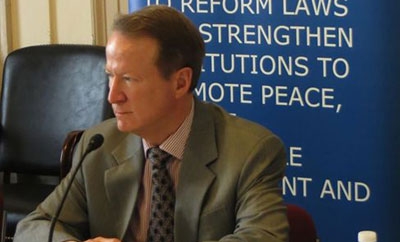A top government official announced on May 23 that the US anti-narcotics office in Bolivia will shut down, a clear sign that the US intends to significantly scale back anti-drug aid in the Andean nation.
William Brownfield, Assistant Secretary of the Bureau for International Narcotics and Law Enforcement Affairs (INL), said that after 30 years, it was time the INL to go and that he believes no further funds for the Bolivia office would be requested for fiscal year 2015, which begins in October 2014.
“I am proud of what the INL section has accomplished,” Brownfield said. “It is my intent to close down our section in a reasonable and orderly fashion.” Brownfield made the remarks during a House Committee on Foreign Affairs’ subcommittee hearing, focused mainly on the effects of the Merida Initiative.
The announcement comes three weeks after President Evo Morales decided to eject USAID from Bolivia for what he deemed political interference, something that the US denies.
InSight Crime Analysis
The US anti-narcotics office in Bolivia has steadily been reducing funding for some time now, providing just $10 million in 2012, down from $15 million in 2011. The US view that Bolivia is not doing enough to combat drug trafficking has contributed to significant tension between the two countries. For five consecutive years, the US State Department’s International Narcotics Control Strategy Report has described Bolivia as failing to sufficiently curb cocaine and coca production. Relations between the two countries have been rocky since Morales’ expulsion of the Drug Enforcement Agency (DEA) in 2008.
Despite these tensions, the US has continued to provide some measure of support to Bolivia. Just last month, the US donated 12 aircraft to the Bolivian Air Force, meant to be used in anti-drug operations. The aircraft donation was arguably intended as a gesture of goodwill, but it will likely be short-lived after Morales’ expulsion of USAID earlier this month, and now Brownfield’s announcement.
Bolivia remains one of the three largest cocaine-producing countries in the world and some cities, like Santa Cruz, continue to struggle with a rising wave of insecurity brought about by organized criminal groups.

